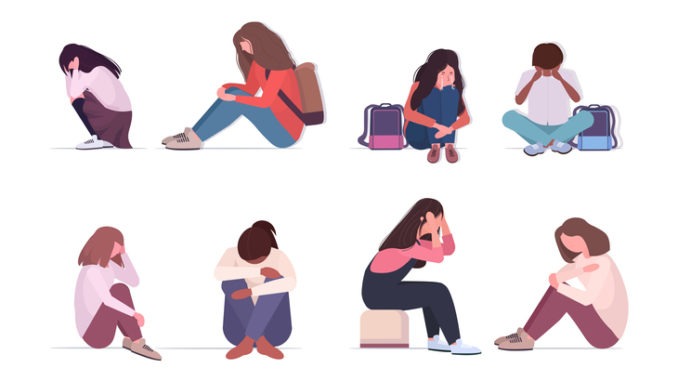
A study warns of a ‘double hit’ to students’ prospects after the COVID crisis disrupted learning and affected wellbeing
This is an edited version of an article that originally appeared on The Guardian
Children experiencing poor mental health are three times more likely not to pass five GCSEs, including maths and English, compared to their peers, according to a study. Researchers warned that pupils are facing a ‘double hit’ to their educational prospects as the COVID-19 pandemic has disrupted their learning and affected their mental health.
The National Centre for Social Research (NatCen) study found an independent association between mental difficulties in adolescence and educational attainment at age 16. It also discovered that mental health problems adversely affected boys’ educational attainment more than girls’. Hyperactivity disorder strongly predicted lower grades for both sexes.
Even when background factors known to affect mental health and grades were controlled for – such as poverty, child-parent relationships and parental engagement with schoolwork – children who experienced mental health difficulties were still twice as likely to not reach the benchmark of five GCSE grades A*-C (or 9-4) including maths and English.
The study, published in the BMJ Open journal, argues that improving young people’s mental health can narrow the attainment gap at GCSE level by boosting the performance of pupils from disadvantaged backgrounds – who are more likely to experience mental health difficulties. Researchers analysed responses from 1,100 children aged 11-14 from the Understanding Society study and subsequently used the National Pupil Database for England to link this information to their exam results at age 16.
“As the school year comes to an end young people are facing a double hit to their educational prospects,” warned Dr Neil Smith, who led the study at NatCen. “First, disruption to schooling caused by the pandemic has directly impacted on learning. Second, the pandemic has adversely affected many young people’s mental health, and it’s likely those whose mental health was affected the most by the pandemic will face greater difficulties in making up for learning time that’s been lost.”
Meanwhile, a government spokesperson said, “We are prioritising support for children’s mental health and wellbeing alongside academic recovery, and have announced £3bn to boost learning, including almost £950m in additional funding for schools, which they can use with some flexibility to support pupils’ needs, such as mental health and wellbeing.
“We are also investing millions specifically for more mental health teams working with schools and colleges, including funding to train a senior mental health staff lead in up to 7,800 settings, and training from mental health experts to improve how staff, pupils and parents cope with additional pressures, bereavement, anxiety, stress or other emotional responses to the pandemic.”


Be the first to comment